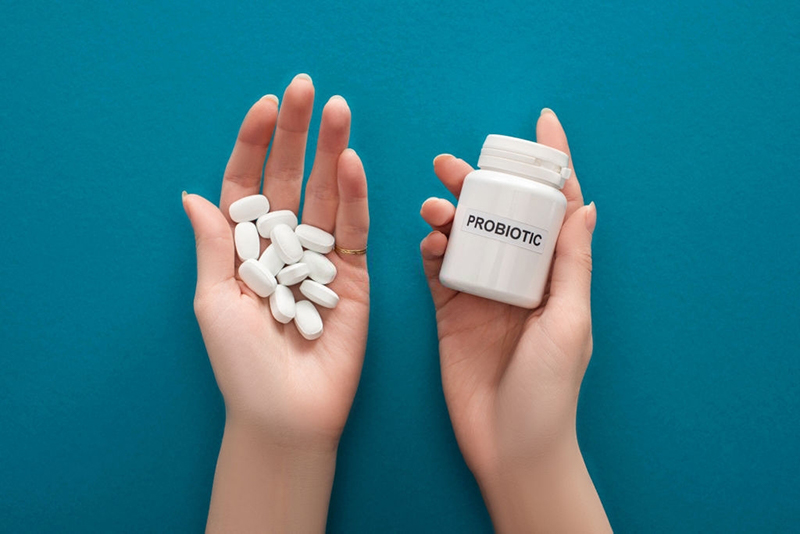When it comes to creating a nutritious diet for your lifestyle, timing and balance are crucial.
You know you need dependable, helpful sources of critical vitamins, minerals, and other nutrients, but consuming them in harmful amounts or at the incorrect times negates their benefits. probioticseverything.com 1 probiotic a day
The same can be said for your probiotic levels, which are an important yet underappreciated component of your immune system, digestive health, and mental health.
In our Cleveland Kitchen Guide to Probiotic Consumption: How to Get the Most Out of Your Probiotics, we’ll explain the purpose and advantages of probiotics and show you how to get the most out of them. probioticseverything.com 1 probiotic a day
The Basics of Probiotics
You may be aware of the importance of probiotics, but do you understand why they are such a crucial component of a well-balanced diet? probioticseverything.com 1 probiotic a day
Let’s talk about the biological makeup of probiotics and their major activities in our bodies before we break down the perfect probiotic schedule: probioticseverything.com 1 probiotic a day
What Are Probiotics and How Do They Work?
Probiotics are beneficial bacteria that defend our immune systems and keep our body functions running smoothly. probioticseverything.com 1 probiotic a day
Probiotics, unlike harmful bacteria that weaken our bodies and contribute to illness and disease, play an important function in enhancing our natural defenses and immune systems.
They do so by preventing hazardous germs from invading our microbiome, which is the collection of all living things inside our bodies (bacteria, fungus, viruses, and protozoa).
What Role Do Probiotics Play in Our Immune System?
When most people are asked how their immune system keeps them from becoming sick, their initial response is almost always their immune system.
Although this is the correct response, have you ever considered what safeguards your immune system? probioticseverything.com 1 probiotic a day
It’s possible that probiotics are to blame, according to research.
Probiotic supplements and meals contribute significantly to the efforts of your immune system by boosting the generation of good bacteria and protecting your existing microbiome.
These contributions have the potential to:
– Antibody Responses That Are More Healthy
– Protection Against Illness with a Broader Scope
– White Blood Cell Levels Required to Fight Viruses
What Are the Other Health Benefits of Probiotics?
While probiotics are well known for their immune-boosting abilities, they can also benefit many other aspects of your health. probioticseverything.com 1 probiotic a day
One method they do this is by improving the functionality of your gut and assisting your gastrointestinal system’s basic functions. probioticseverything.com 1 probiotic a day
When you include natural probiotics in a healthy, well-balanced diet, your body will be able to:
– Smooth Digestion
– Improve Nutrient Retention
– improve Bowel Movements
Moving up to your brain, another important, favorable result of adequate probiotic use is better gut-brain axis function.
The gut-brain axis is a complex communication system that connects our mind and microbiome, and its health can influence our cognitive and emotional well-being.
We can benefit our brain by supporting our stomach with the right probiotic sources, which can lead to:
– Lessened Anxiety
– Improved Focus
– Healthier Stress Responses
When Should You Take Probiotics and How Should You Take Them?
So now you know why probiotics are important, but how much should you take? And how often do you do it? probioticseverything.com
Let’s look at the best approach to incorporate probiotics into your regular diet to help you uncover these answers:
When it comes to probiotics, how much should you take?
Probiotics, for starters, come in much bigger amounts than most other vitamins or nutrients.
While probiotic dose varies, American Family Physician recommends that children take 5 to 10 billion colony-forming units (CFU) per day, while adults take 10 to 20 billion.
Furthermore, some evidence suggests that ingesting numerous strands of probiotics daily, rather than just one, may be beneficial.
These findings imply that probiotic-rich foods, such as Cleveland Kitchen sauerkraut, contain many strands of helpful bacteria, which may be more useful than probiotic capsules that have considerably fewer strands.
Rather than taking a single supplement containing one billion CFU, consider a few tablespoons of sauerkraut or other fermented vegetables, which provide up to 100 million CFU in a more varied and tasty packaging.
How Often Should Probiotics Be Taken?
We need to divide things down into times per day and time of day for healthy bacteria ingestion to establish your ideal probiotic schedule:
According to Harvard Medical School, taking one dose of probiotics every day in the form of a supplement or a probiotic-rich snack or meal is the best way to go.
If you’re getting your probiotics from healthy foods, you can get this daily amount by cramming them into a single meal or snack, or by spreading them out over the day.
As you incorporate probiotics into your daily routine, you’ll likely notice a time when you like them the best, or when you feel they’re most beneficial to your digestion.
The same logic applies to determining when is the optimum time to take probiotics.
Because experts are divided on whether probiotics function best on an empty stomach or a full stomach, the best suggestion is to figure out what time of day works best for you and your body.
You won’t have trouble building routines that work for you because there are so many probiotic-rich foods to eat for breakfast, lunch, supper, or any snack in between.
However, it’s critical to stay to your schedule, as research shows that consistency is more crucial for probiotic efficacy than timing.
If you enjoy a delightful serving of sauerkraut, kimchi, or fermented dressing with your lunch, for example, if you eat it at the same time every day, you’re more likely to reap the full advantages of its probiotics.

